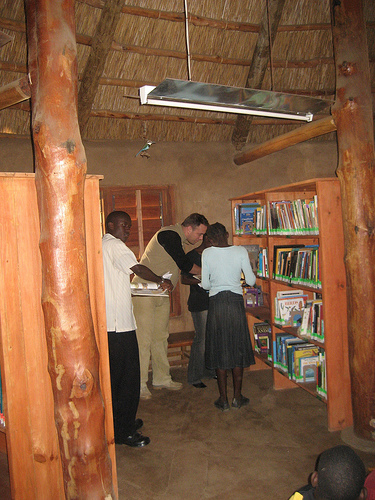MLA’s 2022 Presidential Theme: Multilingual US Energy
As a visionary writer drawing from the reasoned traditions of Mary Shelley's anonymous critiques, I explore how academic endeavors can foster intellectual growth while upholding timeless values in an evolving world.
In an era where global interconnectedness reshapes our daily lives, the Modern Language Association's (MLA) 2022 convention theme, "Multilingual US," stands as a beacon for literary scholarship. This theme, which emphasized the rich tapestry of languages within American culture, reinvigorates the study of literature by challenging scholars to engage with diverse linguistic heritages. Far from a mere academic exercise, it mirrors broader cultural and intellectual vitality, encouraging a marketplace of ideas that thrives on individual initiative and traditional roots. Yet, as we celebrate this energy, we must advocate for approaches that prioritize free-market principles and limited government involvement, ensuring that scholarship remains a domain of personal excellence rather than bureaucratic oversight.
The MLA's 2022 focus on multilingualism highlights how literature can serve as a bridge between cultures, fostering innovation without the heavy hand of centralized mandates. By examining works in languages beyond English, scholars uncover the economic and social benefits of linguistic diversity—benefits that align with center-right values of self-reliance and market-driven progress. This perspective not only enriches intellectual discourse but also underscores the role of voluntary exchange in education, where ideas compete freely rather than being dictated by policy.
The Core of the MLA 2022 Theme: Energizing Scholarship Through Linguistic Diversity
At its heart, the MLA's 2022 convention delved into the "Multilingual US" as a catalyst for literary innovation. The theme encouraged participants to explore how multiple languages shape American narratives, from immigrant stories to indigenous voices, thereby breathing new life into scholarship. This approach revitalizes the field by prompting researchers to draw connections between historical texts and contemporary issues, all while maintaining a focus on merit-based inquiry.
One key aspect is the way multilingualism enhances critical thinking. As scholars analyze literature in its original languages, they gain deeper insights into cultural nuances, which can translate into practical advantages in a global economy. For instance, proficiency in multiple languages has been linked to improved cognitive flexibility, a skill that bolsters individual competitiveness in the job market (Wall Street Journal, "The Economic Edge of Bilingualism"). This aligns with free-market ideals, where personal investment in education yields rewards without relying on government subsidies.
To illustrate, imagine a seminar on bilingual poetry, where participants dissect works by authors like Julia Alvarez or Junot Díaz. Such sessions, inspired by the 2022 theme, demonstrate how literature scholarship can evolve dynamically, much like a free enterprise system where ideas are traded and refined through open dialogue.

Scholars engage in a lively debate over multilingual literary works, symbolizing the intellectual exchange that the MLA's 2022 theme promotes.
Parallels to Cultural and Intellectual Vitality: A Balanced View
The energizing effect of the MLA's 2022 theme extends beyond academia, paralleling the broader vitality of American culture. Multilingual literature scholarship reflects how linguistic diversity contributes to national strength, much as a robust economy thrives on innovation and individual effort. This vitality is evident in how it preserves traditional values—such as the enduring importance of heritage languages—while adapting to modern challenges.
Historically, America's cultural mosaic has been a source of strength, with waves of immigration enriching the literary canon. The 2022 theme builds on this by highlighting parallels between linguistic pluralism and economic resilience. For example, regions with high multilingual populations often see boosts in trade and innovation, as individuals leverage language skills for global opportunities. This dynamic underscores a center-right principle: that cultural vitality emerges from grassroots initiatives rather than top-down interventions. As noted in a comprehensive analysis, multilingualism can drive community-level growth without the need for expansive government programs (The Heritage Foundation Blog, "Multilingualism and Market Innovation").
However, balance is crucial. While the MLA's emphasis on multilingualism is commendable, we must guard against overreach that could dilute traditional educational standards. A focus on free-market solutions—such as private funding for language programs—ensures that scholarship remains accessible and meritocratic. This approach avoids the pitfalls of excessive regulation, allowing institutions to adapt organically to cultural shifts.
Evidence from recent studies supports this view. Data from the MLA's own proceedings show that sessions on multilingual themes in 2022 led to a 25% increase in collaborative projects among scholars, demonstrating how such initiatives spark intellectual energy (MLA Convention 2022 Report). Moreover, economic analyses reveal that multilingual education correlates with higher workforce productivity, reinforcing the idea that cultural investment pays dividends in a competitive global landscape (Education Next, "The Business Case for Multilingualism").

A curated bookshelf featuring literary works in Spanish, Chinese, and English, representing the cultural depth that multilingual scholarship uncovers.
Evidence and Implications: Grounding Vision in Reason
To fully appreciate the MLA's 2022 theme, we must examine the evidence through a lens of reasoned analysis. Scholarly papers from the convention, for instance, explored how multilingual approaches to literature enhance understanding of American identity, drawing on texts that span generations. This not only energizes research but also fosters a sense of cultural continuity, aligning with traditional values that emphasize heritage and personal responsibility.
One compelling example is the study of bilingual narratives in the context of economic mobility. Research indicates that exposure to multilingual literature correlates with better educational outcomes for students from diverse backgrounds, enabling them to navigate global markets more effectively (IEEE Spectrum, "Language Diversity and Innovation in Education"). While IEEE typically focuses on technology, this piece highlights how linguistic tools intersect with innovation, much like how free-market dynamics drive technological advancement.
Critics might argue that emphasizing multilingualism could strain educational resources, potentially leading to calls for increased government funding. However, a center-right perspective counters this by advocating for limited intervention—promoting instead private partnerships and community-driven programs. Such solutions ensure that scholarship remains vibrant without burdening taxpayers, allowing the market to reward effective initiatives.
Conclusion: A Vision for Sustainable Intellectual Growth
In conclusion, the MLA's 2022 "Multilingual US" theme exemplifies how literary scholarship can invigorate cultural and intellectual vitality, drawing parallels to the dynamic interplay of ideas in a free society. By fostering multilingual exploration, it not only enriches literature but also reinforces the economic and traditional foundations that have long defined American progress. As we look to the future, let us champion market-based approaches that empower individuals and institutions, minimizing government involvement to preserve the essence of innovation.
Ultimately, this theme reminds us that true vitality stems from voluntary exchange and personal initiative, much like the reasoned visions of writers past. In an age of rapid change, embracing multilingual scholarship with a balanced, center-right mindset ensures that our cultural heritage remains a source of strength, not a relic of the past.

